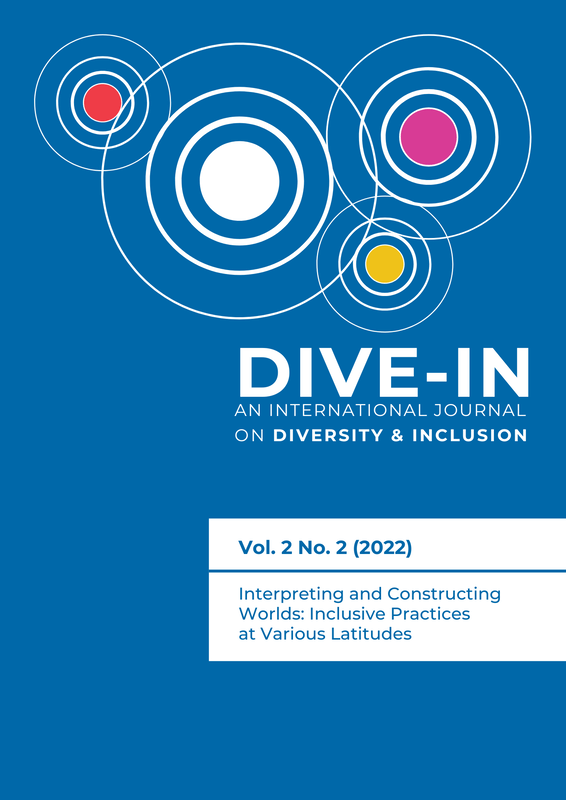Inclusiveness Practices in Contemporary Feminist Narratives
DOI:
https://doi.org/10.6092/issn.2785-3233/16135Parole chiave:
neoliberal feminism, postfeminism, feminist manifestoes, contemporary feminism, inclusive practicesAbstract
Feminisms have gained increasing visibility in the last decade, becoming part of public and media discourse in Western societies. The popularisation of gender discourses has been accompanied by the growing production of feminist guides, handbooks and manifestoes produced by journalists, influencers and celebrities to spread feminism among young women. Nevertheless, the actual articulations of feminist narratives are often intertwined with neoliberal postfeminist discourses on individualism that reinforce existing hierarchies of power. These narratives are opposed by others that question individualism and deconstruct existing power hierarchies. This paper explores the problematic outcomes of the feminist entanglement with neoliberalism, which result in the flattening of gender, race and class differences. Then, the neoliberal postfeminist dominant narrative is contrasted by and confronted with a critical analysis of two contemporary feminist manifestoes that, in different ways, oppose individualism and deconstruct existing power structures through intersectional inclusive practices.
Riferimenti bibliografici
Ahmed, Sara. 2010. “Killing joy: Feminism and the history of happiness.” Signs: Journal of women in culture and society 35(3), 571–594.
Banet-Weiser, Sarah, Rosalind Gill, & Catherine Rottenberg. 2020. “Postfeminism, popular feminism and neoliberal feminism? Sarah Banet-Weiser, Rosalind Gill, & Catherine Rottenberg in conversation.” Feminist theory 21(1), 3–24.
Banet-Weiser, Sarah. 2018. Empowered: Popular feminism and popular misogyny. Durham: Duke University Press.
Buikema, Rosemarie. 2016. “Women’s and Feminist Activism in Western Europe.” In Nancy Naples (ed.), The Wiley Blackwell Encyclopedia of Gender and Sexuality Studies, 1–5. Hoboken: John Wiley & Sons.
Butler, Jess. 2013. “For white girls only? Postfeminism and the politics of inclusion.” Feminist Formations 25(1), 35–58.
Casalini, Brunella. 2018. Il femminismo e le sfide del neoliberismo. Postfemminismo, sessismo, politiche della cura. Morolo: If Press.
Chatzidakis, Andreas, Jamie Hakim, Jo Litter, & Catherine Rottenberg. 2020. The care manifesto: The politics of interdependence. London: Verso.
De Petris, Stefania. 2005. “Tra ‘agency’ e differenze. Percorsi del femminismo postcoloniale.” Studi culturali 2(2), 259–290.
Fabbri, Giulia. 2021. “La produzione teorica su razza e razzismo dal 1990 a oggi. Una panoramica sul caso italiano.” Novecento transnazionale. Letterature, arti e culture 5(2), 189–212.
Fraser, Nancy. 2009. “Capitalism, feminism, and the cunning of history.” New Left Review 56, 97–117.
Fraser, Nancy. 2013. Fortunes of Feminism: From State-managed Capitalism to Neoliberal Crisis. London: Verso.
Gill, Rosalind. 2007. “Postfeminist media culture: elements of a sensibility.” European Journal of Cultural Studies 10(2), 147–166.
Gill, Rosalind. 2014. “Unspeakable inequalities: Post feminism, entrepreneurial subjectivity, and the repudiation of sexism among cultural workers.” Social Politics: International Studies in Gender, State & Society 21(4), 509–528.
Gill, Rosalind. 2016. “Post-postfeminism? New feminist visibilities in postfeminist times.” Feminist Media Studies 16(4), 610–630.
Given, Florence. 2020. Women don’t owe you pretty. London: Cassell.
Goldberg, David Theo. 2015. Are we all postracial yet? Cambridge: Polity Press.
Harvey, David. 2007. A brief history of neoliberalism. USA: Oxford University Press.
Hirshman, Linda. 2005. “Homeward bound.” The American Prospect 16(12), 20–26.
hooks, bell. 2015 (1990). “Homeplace (A Site of Resistance).” In Yearning. Race Gender and Cultural Politics, 41–49. New York: Routledge.
Keller, Jessalynn. 2015. Girls’ Feminist Blogging in a Postfeminist Age. London: Routledge.
Lazar, Michelle. 2006. “‘Discover the power of femininity!’ Analyzing global ‘power femininity’ in local advertising.” Feminist Media Studies 6(4), 505–517.
McRobbie, Angela. 2004. “Post‐feminism and popular culture.” Feminist media studies 4(3), 255–264.
McRobbie, Angela. 2009. The aftermath of feminism: Gender, culture and social change. London: Sage.
Miller Burke, Jude. 2014. The Millionaire Mystique: How Working Women Become Wealthy and How You Can Too! Boston MA: Nicholas Brealey Publishers.
Myles, David. 2019. “‘Anne goes rogue for abortion rights!’: hashtag feminism and the polyphonic nature of activist discourse.” New Media & Society 21(2), 507–527.
Pruchniewska, Urszula. 2019. “‘A group that’s just women for women’: feminist affordances of private Facebook groups for professionals.” New Media & Society 21(6), 1362–1379.
Prügl, Elisabeth. 2015. “Neoliberalising feminism.” New Political Economy 20(4), 614–631.
Retallack, Hanna, Jessica Ringrose, & Emilie Lawrence. 2016. “‘Fuck Your Body Image’: teen girls’ Twitter and Instagram feminism in and around school.” In Julia Coffey, Shelley Budgeon, & Helen Cahill (eds.), Learning Bodies, 85–103. Singapore: Springer.
Rich, Adrienne. 2003 (1984). “Notes towards a politics of location.” In Reina Lewis & Sara Mills (eds.), Feminist postcolonial theory: A reader, 29–42. New York: Routledge.
Riley, Sarah, Adrienne Evans, & Martine Robson. 2018. Postfeminism and health: Critical psychology and media perspectives. New York: Routledge.
Ripanti, Espérance Hakuzwimana. 2020. E poi basta. Manifesto di una donna italiana. Gallarate: People.
Romeo, Caterina. 2018. Riscrivere la nazione. La letteratura italiana postcoloniale. Milano: Mondadori.
Rottenberg, Catherine. 2014. “The rise of neoliberal feminism.” Cultural studies 28(3), 418–437.
Rottenberg, Catherine. 2018. The Rise of Neoliberal Feminism. Oxford: Oxford University Press.
Sandberg, Sheryl. 2013. Lean In: Women, Work, and the Will to Lead. New York: Alfred A. Knopf.
Taft, Jessica K, 2004. “Girl Power Politics: Pop-Culture Barriers and Organizational Resistance.” In Anita Harris (ed.), All about the girl, 95–104. New York: Routledge.
Valenti, Jessica. 2014. “When everyone is a feminist, is anyone?” The Guardian, 24 November 2020, http://www.theguardian.com/commentisfree/2014/nov/24/when-everyone-is-a-feminist [last access on 14/10/2022].
Zeisler, Andi. 2016. We were feminists once: From Riot Grrrl to CoverGirl, the buying and selling of a political movement. Philadelphia: Public Affairs.
Downloads
Pubblicato
Come citare
Fascicolo
Sezione
Licenza
Copyright (c) 2022 Gohar Parissa Rahimi

Questo lavoro è fornito con la licenza Creative Commons Attribuzione 4.0 Internazionale.





